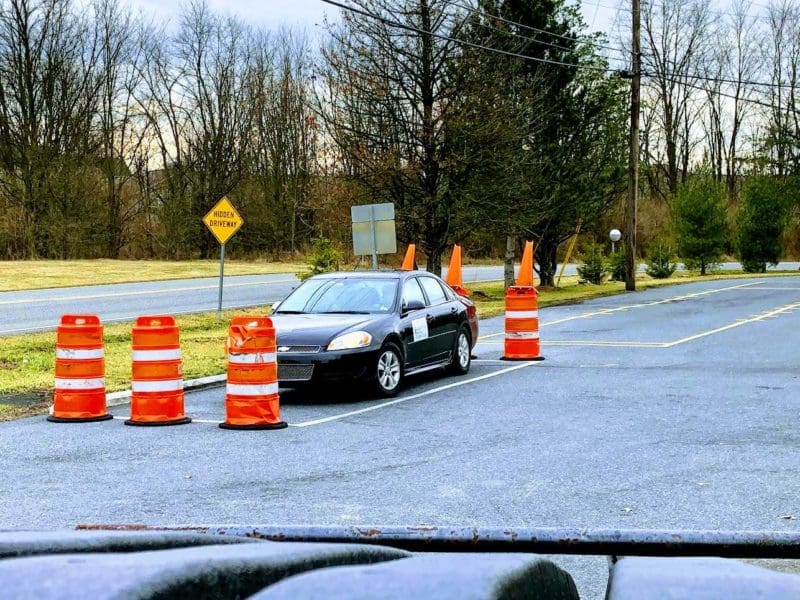
How becoming physically or mentally impaired affects your license?
In Pennsylvania, what happens to my license if I become physically or mentally impaired?
Do you live in the state of Pennsylvania? If so, did you know that your healthcare provider is required by law to report any medical related conditions that may impact your driving? As long as you are 15 years of age or older and your impairment is expected to last more than ninety (90) days, the provider must report your condition to the Pennsylvania Department of Transportation (PennDOT) within 10 days. This will trigger an evaluation to decide what action is needed regarding your licensing.
As a result of your review, the medical unit of PennDOT can impose restrictions on your license, revoke your license entirely, or decide not to take any action at all. This process can be extremely overwhelming, especially in conjunction with a life-changing impairment. That is why we recommend working with an OT Certified Driver Rehabilitation Specialist (CDRS). They are educated and trained specifically to help drivers understand and improve their driving ability and confidence after medical illness, a major medical event, health conditions, and/or injury. Most importantly, they know the regulations for your State and they can help guide you through the process of regaining, maintaining, or retiring your license.
 What medical impairments do health care providers need to report?
What medical impairments do health care providers need to report?
You may wonder what the state looks for when considering if you have a medical impairment that will affect your licensing. There is an entire board in the state of Pennsylvania that is dedicated to this area of expertise. The PennDOT’s Medical Advisory Board “consists of a neurologist, a cardiologist, an internist, a general practitioner, an ophthalmologist, a psychiatrist, an orthopedic surgeon, an optometrist, and members from PennDOT, General Counsel, Department of Health and the Pennsylvania State Police.” The expertise of this group is what determines the conditions that need evaluation. An inclusive list can be found here, but the conditions below cover some of the most common physical and mental driving impairments, as found on the PennDOT website
Physical Conditions:
- Visual acuity and field of vision standards
- Seizure disorder
- Unstable diabetes
- Cardiovascular conditions
- Cerebral vascular insufficiency
- Periodic episodes of loss of consciousness and/or awareness
- Loss or impairment of joint or extremity
- Rheumatic, arthritic, orthopedic, muscular, vascular or neuromuscular disease expected to last longer than 90 days
- Use of any drug or substance that is known to impair skill or function
Mental Conditions:
- Cognitive Impairments
- Inattentiveness to the task of driving because of, for example, preoccupation, hallucination or delusion
- Contemplation of suicide, as may be present in acute or chronic depression or in other disorders
- Excessive aggressiveness or disregard for the safety of self or others or both, presenting a clear and present danger
What is the process if I get reported or need a medical review through PennDOT?
When you have had a change that requires a medical review of your license or your condition has been reported by a healthcare provider, there is a specific process PennDOT takes to assess your driving ability. The first step is an initial report, and after that is complete, one of these three actions is taken:
- You will be deemed medically competent to drive and no action will be necessary; or
- You will be deemed medically incompetent and must have your driving privileges recalled within 7 days; or
- More information will be necessary to review your case and you must supply PennDOT Medical with any requested documentation within 45 days.
If you do not supply the required information, as referenced above, your license will be suspended within 30 days for non-compliance. Otherwise, once your documentation has been reviewed, PennDOT will either place restrictions on your license or determine that you have failed to meet medical standards and revoke it.
What does it mean to have restrictions on your license?
With all of the vehicle modifications and rehabilitation services available to drivers, license revocation isn’t always necessary. PennDOT may instead place restrictions on your license or permit to keep everyone on the road safe, including you.
Some common restrictions include:
- Wearing corrective lenses when driving (glasses/contacts)
- Equipping a vehicle with mirrors on both sides (dual mirrors)
- Equipping a vehicle with an automatic transmission (no manual transmission)
- Equipping a vehicle with special equipment (spinner knob, left foot gas pedal, etc.)
- Only driving during daylight hours sunrise to sunset (no night driving)
- Limiting the driving radius for those with a vision impairment
Certain types of restrictions or the use of adaptive driving equipment may require you to retake your driver’s test before obtaining your new license.
How can a Driver Specialist help?
Whether you are regaining your license after a medical suspension, applying for a restricted license, gaining the approval to drive with adaptive equipment, or trying to move the evaluation process along, the help of a driver specialist (DRS or CDRS) will save you time and money!
The state’s restrictions and guidelines can be tricky to follow, but hiring a driver specialist ensures that you will have someone to advocate for you who actually understands the system. You will spend less money by getting the guidance and documentation you need the first time around. Plus, as a bonus, you will be working with someone who can address all of your personal driving concerns and who has your best interests at heart.
If you would like more information about working with a certified driver rehabilitation specialist, please contact us to discuss your options.
Reference: DMV. (n.d.). Medical Reporting. PennDOT Driver & Vehicle Services. Retrieved August 5, 2022, from https://www.dmv.pa.gov/Information-Centers/Medical-Reporting/Pages/MedicalReporting.aspx
Looking for a specialist in your area: CLICK HERE
Interested in learning more about
becoming an OT Driver Rehab Specialist: CLICK HERE
Meet Susie!

Susie Touchinsky, OTR/L, SCDCM, CDRS, is an established expert in both occupational therapy and driver rehabilitation. She has been an OT for more than 20 years and brings expertise and a love for helping others in her speeches and trainings.
Learn More With Our OT Driver Rehabilitation Specialist Courses
Try Our Free OT DRS Courses:
- OTs Role With Driving
- GRID: Generalist Resource to Integrate Driving
- Readiness to Drive: IADL Checklist
- FREE 6 Driving Resources for the OT
- 5-Steps Our Clients Use to Start Their Own Highly-Paid OT Driver Rehab Business
- Driving Risk Screening Tools
- BCAT Brief Cognitive Assessment Test System Overview
- BCAT Part 2: CBS 8 & 15-for-Me
Become the best OT Driver Rehabilitation Specialist you can be by being a life long learner.
